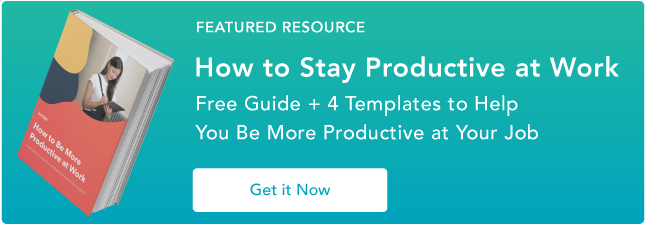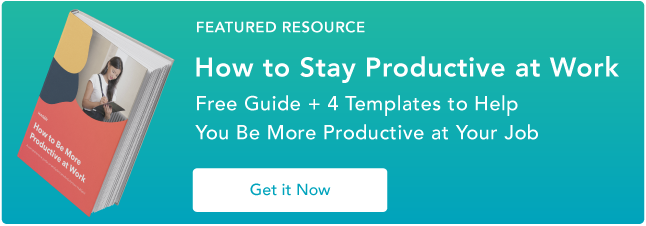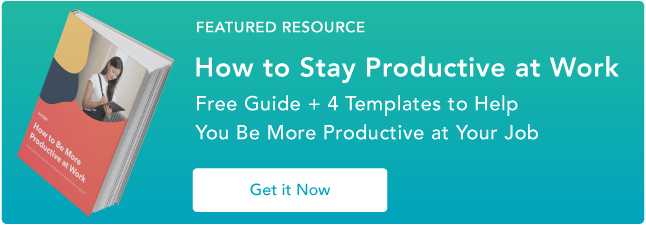The Science of Productivity: How to Get More Done in a Day

It’s estimated that a shocking 60% (or less) of work time is spent productively, according to Atlassian. Time is our scarcest resource, yet we spend so much of it doing things that are unproductive — usually without meaning to.
Emails, meetings, endless notifications… We’re indeed being pulled in more directions than ever before, but it’s not just technology holding us back from making the most of our time. In many cases, we are the ones responsible for our own lack of productivity.
As a freelance remote worker, I’ve had to tango with my self-sabotaging productivity quirks more than most. I used to blame my workload and environment; it wasn’t until I was completely in control of those factors that I was left with the realization that I was the problem all along.
Like you, I’m more successful and happy when I’m productive. We’re all on the hunt for the magic bullet solution; this has led to the endless production of AI productivity tools and life-hack lists. How can we produce more while doing less?
We look over at the person who seems to get it all done while still managing to have a life, and we ask ourselves: What does she know that I don’t? Is there a secret to high productivity?
With some work, many of the barriers to productivity are solvable. However, to truly enhance productivity, you need to first understand it. Here’s what science says.
Table of Contents
- The Science of Productivity
- 9 Science-Proven Ways to Get More Done in a Day
- Data-Backed Productivity Tools
The Science of Productivity
“Productivity is the art and science of reshaping yourself and the world around you in a way that makes the world work better,” shares author and organization expert Frank Buck, Ed.D.
“While the literature on productivity is massive, it all points back to that one definition. Psychological research dating back to at least 1966 (J.B. Rotter) suggests that those who feel they can control their surroundings act upon those beliefs, persist longer, and achieve greater results,” Buck concludes.
Society has long been aware of a shared desire to improve productivity, yet the modern world has moved us further away from that dream.
Technology provides constant, endless distractions — and we feed into this by being subconsciously addicted to information.
Scientists have discovered that the dopamine neurons in our brains treat information as a reward.
While this makes sense evolutionarily — having access to relevant information like the location of food sources means we make better decisions and are more likely to survive — it also means we’re naturally attracted to distractions outside our primary objectives.
Insert: our phones. Smartphones are a distraction disaster. Here’s how to overcome the hurdles that technology presents.
9 Science-Proven Ways to Get More Done in a Day
A quick Google search will show you that most productivity lists recommend artificial intelligence software (AI). I’ll share some of the top AI productivity …read more
Source:: HubSpot Blog








